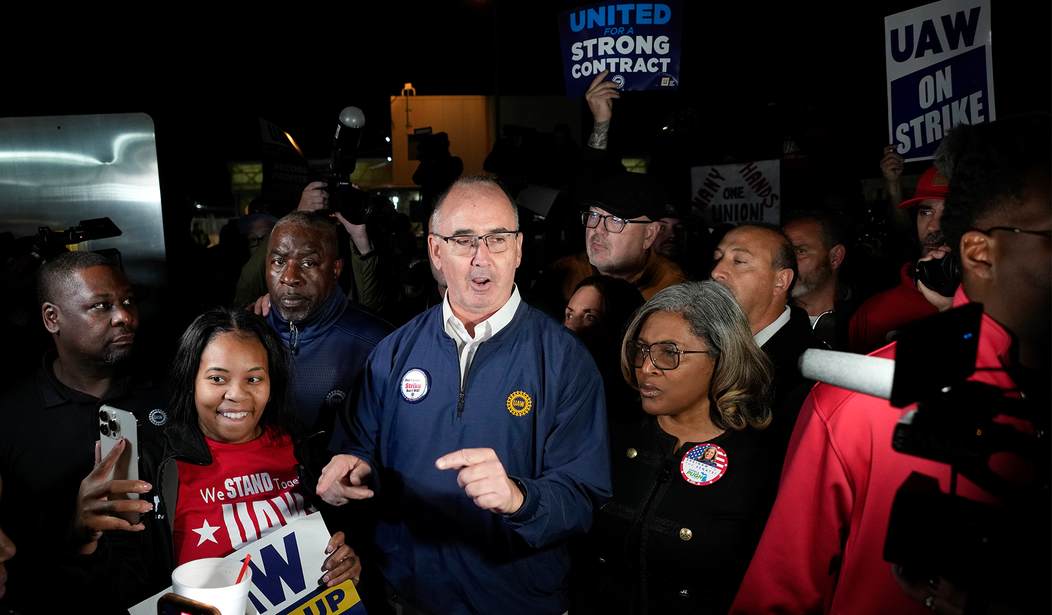The Sharon Statement, drafted 60 years ago this month by young patriots at the suburban Connecticut home of William F. Buckley, Jr., comes about as close as any document ever has to defining the conservative movement.
With its homages to the ideals of free choice, individual liberty, defense against enemies both foreign and domestic, federalism, a market economy, limited government, American exceptionalism and national sovereignty, the declaration provided the first — and perhaps, still, the single clearest — enunciation of what sets our way of seeing the world apart from the breezy, fact-challenged prescriptions of the left.
Still, Sharon — like the Constitution it reveres — remains a product of its time and requires periodic amendment to reflect the nation’s evolving political and technological realities.
To that end, the FreedomConservatism.org website in July crafted a retooled version of the statement that reinforces the principles enshrined in the original while adding robust provisions dealing with self-sufficiency, the ballooning national debt, immigration, freedom of conscience and condemning racism.
What emerged was a proclamation onto which dozens of leading conservative figures and representatives from the country’s most respected public policy organizations were proud to affix their signatures.
The document does not, of course, pretend to provide an exhaustive list of issues that should animate conservatives; rather, it offers a prism through which specific issues may be viewed. For example, its third tenet reads, “We commit to reducing the cost of living through competitive markets, greater individual choice, and free trade with free people, while upholding the rule of law, freedom of contract and freedom of association.”
Recommended
Without saying so directly, the provision rightly targets the one force committed to — and all too successful at — repudiating every one of the ideals conservatives hold dear.
Simply put, this canon of conservatism affirms — however tacitly — that organized labor in general, and government employee unions in particular, have cemented their status as an enemy of the values that made America great and the good men and women endeavoring to preserve them.
To be clear, that needn’t be true. In theory, the republic is not undermined when workers bargain collectively rather than individually for the enhancements in wages, benefits and working conditions they all seek.
But the fabric of our economy is rent when unions are allowed to do more than simply articulate their demands. Unions exceed their bounds when they conspire to prevent management from replacing striking employees with non-union workers willing and able to perform the same tasks for the wage being offered.
More pointedly, there is nothing remotely conscionable about unions being able to force workers to join and pay dues as a precondition of employment. Even more obviously, labor organizations have no right to confiscate dues dollars from unwilling workers and divert them to the political candidates and causes favored by union leaders.
The drafters of the original Sharon Statement in 1960 could not have anticipated that President John Kennedy, just two years later, would sign an executive order extending collective bargaining rights to federal employees, opening the door to unionizing workers at every level of government. After all, no less a liberal icon than Franklin Roosevelt famously wrote that, “(T)he process of collective bargaining, as usually understood, cannot be transplanted into the public service.”
In the years since, union membership rates in the private sector — where wages are almost entirely dependent on profits — has shrunk to an all-time low of 6 percent. Among government workers, however, the rate of union membership hovers at 33.1 percent, undoubtedly because raising the pay of public employees requires nothing more than the political muscle to increase taxes.
Consequently, unions donate generously to the campaigns of politicians — almost exclusively on the far left of the spectrum — only too happy to show their gratitude at the bargaining table.
This self-perpetuating, incestuous relationship between unions and government would be repugnant even if that’s all there were to it. But there’s more.
Over time, union leaders became so enthralled with the political influence they wield that it superseded any sense of responsibility to the rank-and-file member. Nowadays, government employee unions with names like SEIU, AFSCME, the National Education Association (NEA) and the American Federation of Teachers (AFT) have metastasized into a shadow government, spending billions of their members’ dues dollars every election cycle to advance a radical leftist agenda that has little or nothing to do with pay, benefits and working conditions, while conflicting with the core values of roughly half their members.
Despite the best efforts of Big Labor to conceal its true objectives, there’s no question union leaders advocate for everything that would strengthen their own political and financial position but against the values that have made America the envy of the world.
And like most unpleasant things in life, the first step to fixing the damage being done by arrogant unions is calling them out and resolving to defeat them. This the Freedom Conservatism document unequivocally does.
Jeff Rhodes is Vice President of News and Information at the Freedom Foundation. www.FreedomFoundation.com.

























Join the conversation as a VIP Member